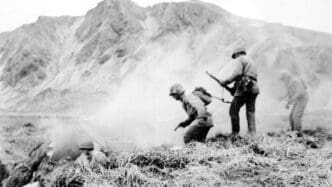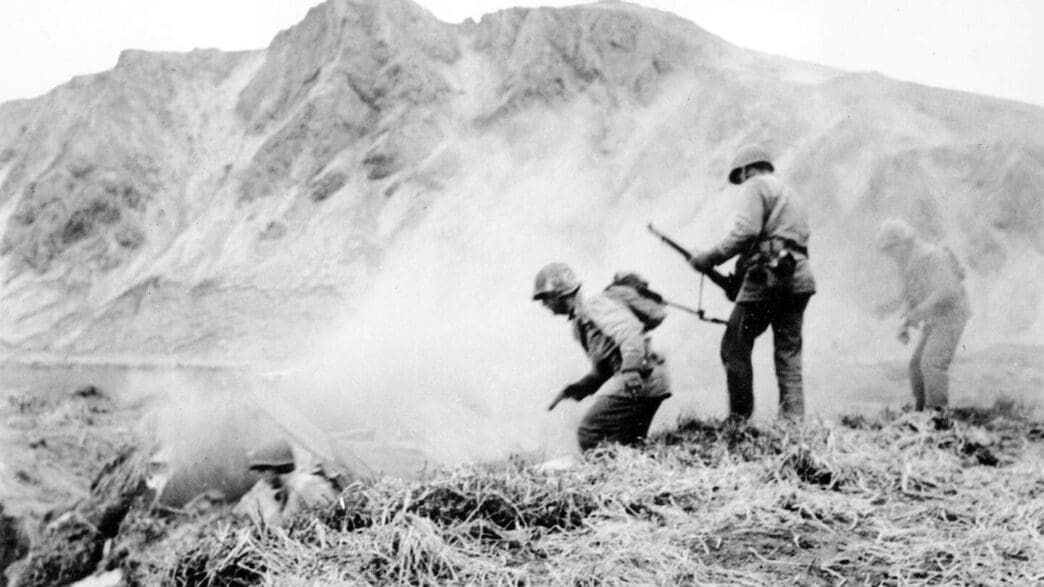In a compelling plea, Helena Pagano, the great-granddaughter of the last chief of Alaska’s Attu Island, has reignited demands for additional reparations from Japan for the 1942 invasion. Pagano’s recent visit to the historically significant island, along with Japanese officials, unearthed deep-rooted memories and unresolved grievances linked to the wartime occupation.
The saga of Attu Island, a remote outpost in the Bering Sea, stands as one of the few instances of U.S. territory occupation during World War II, alongside Guam, the Philippines, and Kiska. Japanese forces landed on June 7, 1942, leading to the capture and internment of the residents. The inhabitants, including Pagano’s great-grandfather, Mike Hodikoff, were forcibly taken to Japan. Tragically, many, including Hodikoff, succumbed to harsh conditions and malnutrition during their detainment.
During the retaking of Attu by U.S. forces in 1943, now referred to as the ‘forgotten battle,’ more than 2,500 Japanese soldiers and about 550 American soldiers lost their lives. The post-war period did little to mend the wounds for Attuan survivors. They were not permitted to return to their homeland due to cost concerns regarding rebuilding, effectively ending their connection to their ancestral land.
In a gesture perceived as inadequate, Japan offered a financial settlement to surviving Attuans in 1951, which most accepted. However, Pagano’s grandmother refused the settlement, finding it insufficient considering the profound suffering endured. Pagano continues this sentiment, highlighting the lack of compensation for cultural and territorial losses.
Pagano advocates for both financial restitution and initiatives that would help preserve Attuan culture. She has proposed the establishment of a cultural center in mainland Alaska and called for an environmental cleanup of Attu Island, addressing remnants of the war. Her initiatives underscore a desire for acknowledgment and reconciliation that extends beyond monetary compensation.
The Japanese government has cited historical treaties as a resolution to compensation claims, yet Pagano maintains that these do not inhibit further restitution. During the recent expedition to Attu, the act of exhuming remains by Japanese officials brought additional tension to already fraught relations, particularly as these remains could belong to U.S. soldiers or Attuan residents.
The historical trauma experienced by Attuan descendants is indicative of broader regional issues related to wartime reparations. The Aleut Corp, a regional entity for the benefit of Alaska Natives, has acknowledged the lasting impact and necessity for collaborative resolutions. The recovery of remains continues to be a sensitive topic, with Japan pursuing further recovery efforts while balancing the environmental safeguards imposed by the U.S.
Helena Pagano’s journey reflects a broader struggle for justice and recognition of historical wrongs faced by the Attuan people. Her efforts are emblematic of a continued resolve to seek redress, preserve cultural heritage, and ensure environmental sanctity, underscoring the enduring impact of wartime events and their legacy on current generations.
Source: Apnews








